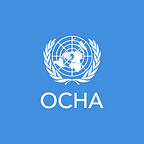Yemenis’ hopes for peace go unanswered
Abs, a desolate settlement in northern Yemen, has become the harsh home for thousands of people fleeing the country’s ongoing conflict. The people living there each have a different story, but their stories all share a tragic common thread: fear and loss, hunger and hopelessness.
In late October, Emergency Relief Coordinator (ERC) Mark Lowcock travelled to Abs and other locations on both sides of the conflict’s front lines to meet with people affected by the crisis and to hold discussions with Government and opposition forces on how to alleviate the growing suffering.
A population in peril
This year has marked several grim milestones for Yemenis. Already the poorest country in the Middle East, Yemen has seen its GDP plummet from US$40 billion in 2014 to a projected $15 billion in 2017. The country is experiencing the largest single-year cholera outbreak ever recorded, resulting in more than 900,000 suspected cases. Yemenis also face the world’s biggest hunger crisis, with 17 million unable to procure adequate food to survive. And they face an unprecedented threat of famine, with a staggering 7 million people dependent on emergency assistance for their next meal.
“Conflict is causing death, injury, sexual violence and abuse, damage and destruction, massive displacement, loss of livelihoods, hunger and disease,” the ERC told Member States at a briefing on 6 November. “We need to make headway…so we can save lives and relieve the appalling suffering of millions of men and women, boys and girls across Yemen.”
A collapsing public sector
One of the most acute consequences of the crisis has been the non-payment of public sector salaries. More than 1 million civil servants have not been paid regularly for up to a year, affecting the family income of 8 million people and disrupting essential public services for the rest of the population.
“Unpaid salaries are a main driver of humanitarian need,” the ERC underlined. “Without doctors and nurses, hospitals simply shut down… Without sanitation workers, rubbish is piling up in the streets, creating the perfect conditions for cholera. Without teachers, schools remain closed. What do we think a generation of Yemeni children robbed of an education will be like as adults?”
Diminishing access
For the past two years, it has been difficult to access people in need in Yemen, but the situation just worsened further. On 6 November, the Saudi-led Coalition announced a blockade of all air, sea and land access. This means the flow of humanitarian goods into the country has effectively ground to a halt.
To give an idea of what this looks like in reality, it means a ship carrying surgical kits for trauma patients and water purification tablets for cholera prevention cannot leave Djibouti.
Yemen only has 2,000 surgery kits left.
It means delivery of 50,000 vials of insulin for diabetics, is in jeopardy.
And it means millions of people assistance may soon fall into famine.
In Yemen, where nearly all food, fuel and medicines are imported, commercial access is also desperately needed. With the vast majority of the population in need of humanitarian aid for their very survival, the blockade is nothing short of catastrophic.
Following a briefing to the Security Council on 8 November, the ERC put it this way to reporters:
“I have told the Council that unless those measures [blocks on the passage of aid] are lifted… there will be famine in Yemen… It will be the largest famine the world has seen for many decades, with millions of victims.”
Thousands of aid workers keep aid flowing in Yemen, but the UN-run humanitarian air service has been effectively grounded. This is in violation of international humanitarian law and Security Council Resolution 2216, which calls for safe, rapid and unhindered humanitarian access.
The ERC has called for an end to interference in the aid operation, and the immediate payment of health workers across the country. He also called for the response to the world’s worst humanitarian crisis to be fully financed.
Financing the response
In 2017, the humanitarian community requested $2.3 billion to reach 12 million people who need humanitarian assistance. As the humanitarian situation has deteriorated during the year, donors have stepped up. So far, $1.3 billion has been provided, enabling humanitarian organizations to reach 7.7 million people with food aid, medicine, clean water and other assistance.
To sustain this support and save more lives, however, further funding is needed:
“The United Nations and partners are ready to scale up further. But we need more generous and timely donor support. To reach more people through the coordinated response, I respectfully ask all to directly fund the Yemen Humanitarian Response Plan, including through the Yemen Humanitarian Fund, and implement the pledges and commitments more quickly,” the ERC said in a briefing to Member States.
